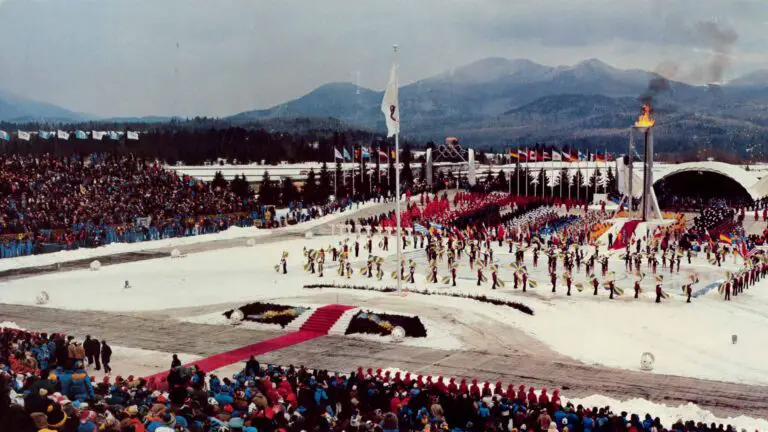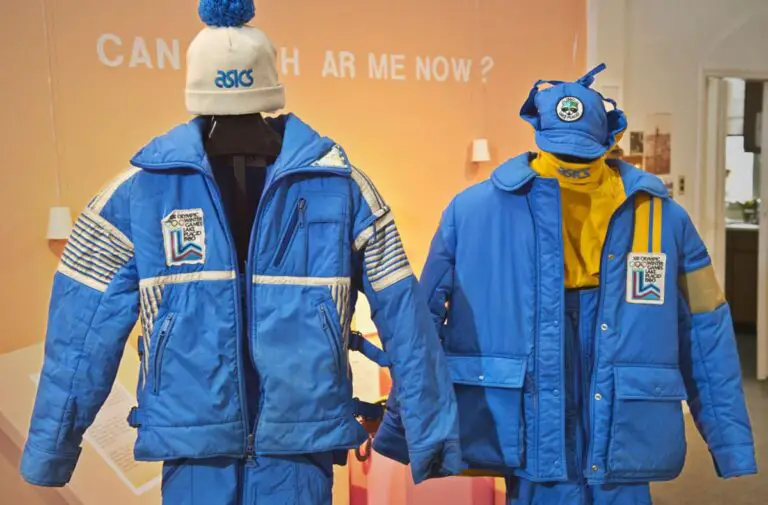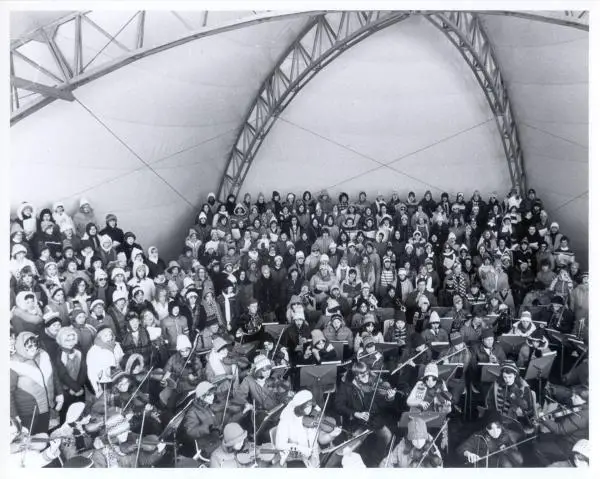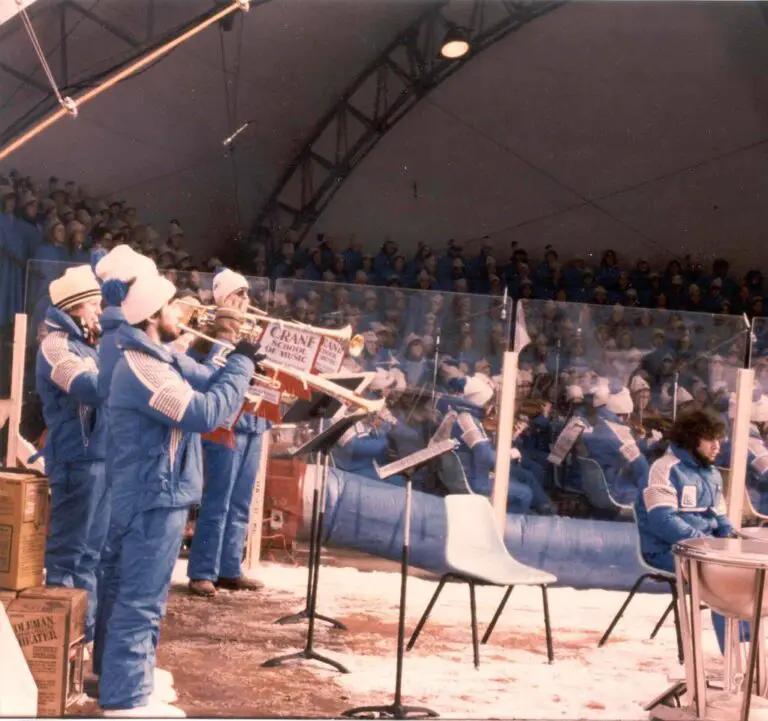As the XXIV Olympic Winter Games take place in Beijing, China, we look back 42 years to the XIII Olympic Winter Games held in Lake Placid from February 13, 1980 to February 24, 1980. Home of the Miracle on Ice and speedskater Eric Heiden winning five gold medals, the Lake Placid Winter Olympics brought together 1,072 athletes from 37 countries to take part in 38 official events in February 1980.

The games also featured a theme song, in the form of Rochester Jazz legend Chuck Mangione’s “Give it All You Got,” a tune released a week before the games, that would chart as high as #1 on the Adult Contemporary, #18 on the Billboard 100 and #32 on the R&B chart, and recently named by Billboard as the #1 Olympics theme song of all time. ”Give it All You Got” was Mangione’s second single to reach #1 on the Adult Contemporary chart, after “Feels So Good” achieved that feat in 1978.
Mangione was asked by Roone Arledge, then ABC Sports president, to craft a song for the Winter Olympiad. ABC had used Mangione’s recordings, including “Chase The Clouds Away,” four years earlier during their coverage of the 1976 Summer Olympics in Montreal. Featuring a lineup of Charles Meks (bass), James Bradley Jr. (drums), Grant Geissman (guitar), and Chris Vadalla (saxophone), Mangione, America’s most famous flugelhorn player wrote the Grammy-nominated song for his 1979 album Fun and Games.
Richard Challen wrote in 2020 about “Give It All You Got”:
This is fusion jazz at its most peppy and pristine, the network TV version of “gritty.” Mangione and saxophonist Chris Vadala volley the theme back and forth for nearly half the track’s six-minute runtime, content to let that breezy melody do most of the work. There’s some inspired composition going on beneath the surface: the way the chord structure keeps dancing between major and minor, the spots where flugelhorn and sax each converge in twin harmony. Throw in Charles Meeks’ slippery bassline and some Nile-Rodgers-style rhythm work from Geissman, and you’ve got the perfect soundtrack for cruising L.A. in a ’74 Stingray convertible.
Mangione told Wesley Hyatt for his 1999 book The Billboard Book of No. 1 Adult Contemporary Hits about the process of composing the music for the instrumental, saying:
(my) vision was to think about the athletes and their efforts to do their best now. They’re giving it all they’ve got. And we almost got to be like the athletes because we also got to perform the song at the ceremonies.
“Give It All You Got” was nominated for best instrumental composition at the 1981 Grammy Awards, losing out to John Williams’ score for The Empire Strikes Back.
Mangione would perform “Give it All You Got” live at the Winter Olympics closing ceremony (as well as the song “Pina Colada”) on Sunday, February 24, 1980, just hours after the conclusion of the gold medal hockey victory for Team USA over Finland along with the Hamilton Philharmonic Orchestra from Ontario, Canada.
In addition to Mangione, the Crane School of Music at SUNY Potsdam contributed to the Lake Placid Winter Olympics as well. A 600-member Olympic chorus and orchestra, a 50 member wind ensemble and three Olympic bands of 50 members each, who were bused in daily and wore weather appropriate parkas and boots, instead of the typical tuxedos and gowns. Brass performers tested their instruments in the meat freezer of the local supermarket in Potsdam as they prepared for the Games.

Feb. 9, 1980 featured the Collegiate Singers, directed by Brock McElheran, as they performed for the International Olympic Committee, along with visiting dignitaries from participating nations.
Four Crane School of Music faculty members composed original works for the Olympic Games, including Elliot Del Borgo, Arthur Frackenpohl, William Maul and Robert Washburn. When American gold medal winners, including speedskater Eric Heiden, received their medals, they were accompanied by an arrangement of the “Star Spangled Banner” by Frackenpohl, who also arranged the Greek and Yugoslavian national anthems. Washburn composed “Parade of Nations” for the opening ceremonies, while Del Borgo wrote the piece played during the closing, “When Dreams Are Dreamed and Dreams Are Won,” and Maul composed “March of the Athletes,” used for the closing ceremonies.
Crane School bands would provide music for the award ceremonies each evening, with Professor Emerita Rebekah Covell leading the Crane Symphonic Band for 14 performances over 14 days. With an added degree of difficulty, Covell and the musicians would often have less than an hour to rehearse national anthems needed for the medal award ceremonies, prior to playing the songs outdoors, often in freezing temperatures. Notably, Robert Mero, a former technical assistant at Crane, came out of retirement to assist musicians with technical services during the Games, per Robert Gibbs, a professor and emeritus member of the Crane School alumni board.
Between Chuck Mangione and students and faculty at the Crane School of Music, all music for the 1980 Winter Olympics can be credited to talented born and/or raised New Yorkers. Here’s to the Winter Olympics returning to Lake Placid in the coming years, perhaps split with Montreal.




Comments are closed.